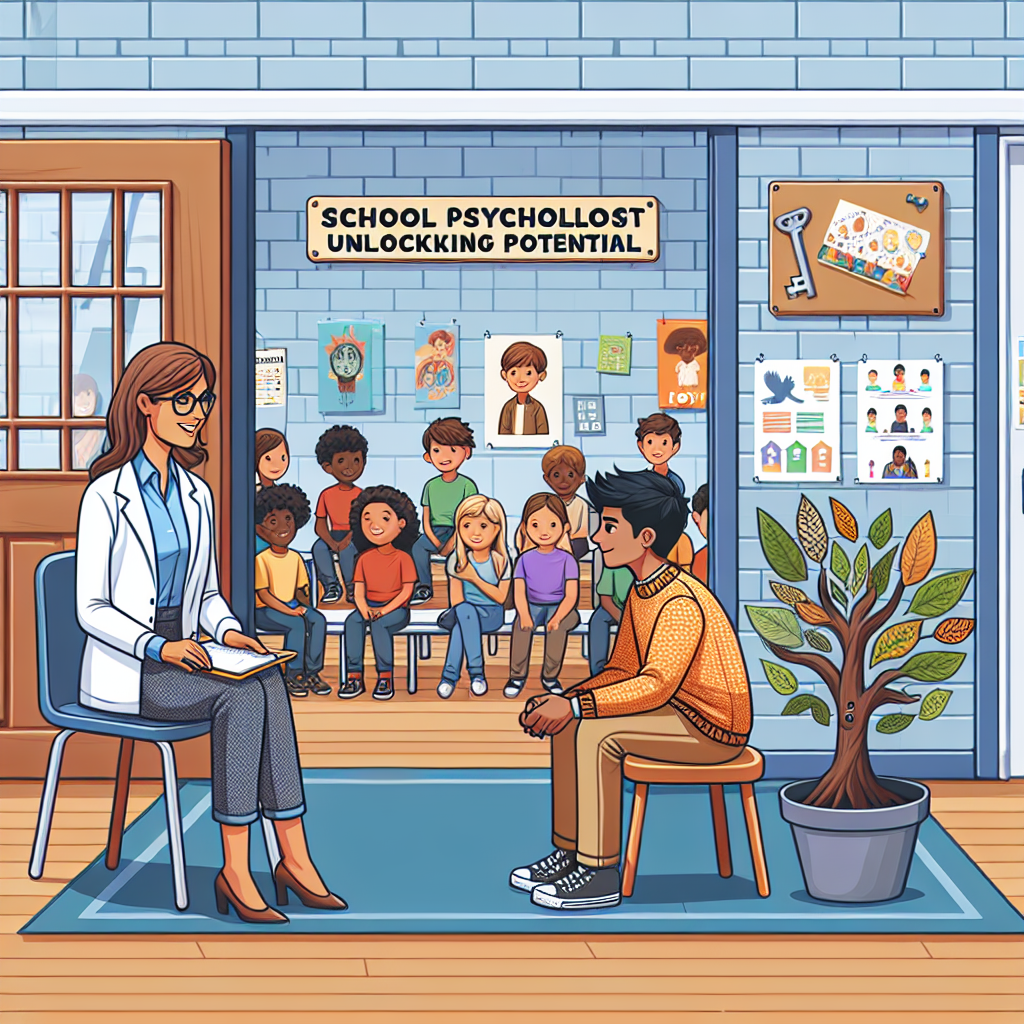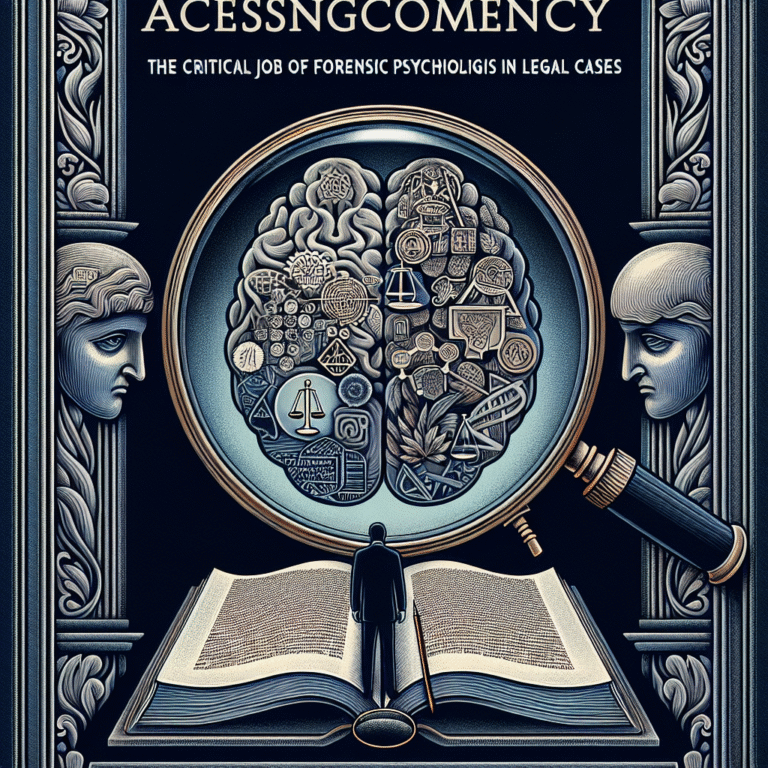
Introduction
Imagine a school environment where every student feels supported, understood, and empowered to reach their full potential. This is not just a dream; it can be a reality through effective school psychology services. Unlocking potential is more than just a catchy phrase; it’s a mission that drives school psychologists to create an inclusive and nurturing environment where every child can thrive. In this article, we will delve into the transformative power of these services, exploring their significance, practical applications, and tangible outcomes, while also addressing some common questions surrounding this crucial field.
The Role of School Psychology Services
What Are School Psychology Services?
School psychology services encompass a broad range of activities aimed at promoting the mental health and academic success of students. According to the National Association of School Psychologists (NASP), these services include assessment, intervention, prevention, and consultation, all tailored to enhance the educational experience.
Why Are School Psychology Services Essential?
The relevance of school psychology services has never been more critical. As pressures surrounding academic achievement and personal development intensify, students increasingly require emotional, social, and academic support. School psychologists can identify barriers to learning, provide targeted interventions, and collaborate with educators and families to create a comprehensive support system.
Key Areas of Impact
- Mental Health Support: Addressing emotional challenges such as anxiety and depression.
- Academic Interventions: Creating strategies for struggling learners to achieve their academic goals.
- Crisis Management: Helping schools navigate traumatic events and ensuring students feel safe and supported.
Case Studies in Action
Case Study 1: Enhancing Academic Success
Background: At Maplewood High, a significant percentage of students were underperforming academically, despite high potential.
Intervention: The school employed a psychologist to conduct assessments and identify underlying issues such as learning disabilities and emotional distress. Through tailored interventions—such as one-on-one tutoring and group workshops—students received the support they needed.
Outcome: Within one school year, Maplewood High saw a 25% increase in student performance on standardized tests, showcasing the power of individualized interventions.
Analysis: This case illustrates how unlocking potential through targeted academic support significantly impacts student outcomes.
Case Study 2: Addressing Mental Health Needs
Background: Riverside Elementary encountered a spike in reported anxiety levels among students due to various factors, including social media pressures and academic stress.
Intervention: A school psychologist implemented a program focused on social-emotional learning (SEL), integrating mindfulness practices and coping strategies into the curriculum.
Outcome: Teachers noted decreased behavioral issues, and students reported feeling more equipped to handle stress. A survey showed a 40% improvement in students’ self-reported anxiety levels.
Analysis: This demonstrates how proactive mental health services can cultivate resilience and emotional well-being among students.
The Transformative Practices of School Psychologists
Comprehensive Assessments
Understanding how to unlock potential begins with comprehensive assessments. School psychologists utilize various tools to identify students’ strengths and challenges. These assessments inform personalized interventions, ensuring that each student receives the support tailored to their unique needs.
Individual and Group Counseling
Counseling services provide safe spaces for students to express their feelings and develop coping mechanisms. Whether in individual sessions or group settings, school psychologists help students navigate issues ranging from peer relationships to family dynamics.
Collaboration with Educators and Parents
An essential part of unlocking potential involves collaboration among school psychologists, teachers, and parents. Regular communication helps create a unified approach to student support, allowing all parties to work toward common goals.
Crisis Intervention and Management
Crisis events can disrupt a student’s educational journey. School psychologists play a vital role in providing immediate support and long-term strategies to help students cope and recover from traumatic experiences.
Measuring Success: A Data-Driven Approach
The Role of Data in School Psychology
Gathering and analyzing data is crucial for evaluating the effectiveness of school psychology services. Schools can employ various metrics, such as academic performance indicators, behavior incident reports, and mental health assessments, to measure success.
| Metric | Before Intervention | After Intervention |
|---|---|---|
| Standardized Test Scores | 60% | 85% |
| Behavior Incident Reports | 30 incidents/month | 10 incidents/month |
| Student Self-Reported Anxiety | 70% felt anxious | 30% felt anxious |
Analyzing Data for Continuous Improvement
By analyzing data trends over time, school psychologists can continually refine and enhance their strategies, ensuring they remain responsive to the evolving needs of students.
The broader Impact of School Psychology Services
Fostering Inclusivity
Unlocking potential also means creating an inclusive environment. School psychologists advocate for students with disabilities, ensuring that they receive equitable access to educational opportunities and resources.
Building a Supportive School Culture
A positive school climate contributes to student success. School psychologists contribute to initiatives that promote diversity, equity, and inclusion, fostering a culture where all students feel valued.
Preparing Future Generations
The work of school psychology services goes beyond immediate benefits. By equipping students with the skills they need to navigate challenges, these services prepare them for future success, ultimately shaping responsible, resilient adults.
Conclusion: A Call to Action
Unlocking potential through school psychology services is a transformative journey for both students and educators. By investing in these essential services, schools demonstrate a commitment to the holistic development of their students. As we look to the future, it is crucial to advocate for a system that prioritizes mental health, academic support, and inclusivity, ensuring that every child has the opportunity to thrive.
Final Thoughts and Takeaways
- Supportive Environment: Work collectively to provide students with the emotional and academic support they need.
- Ongoing Assessment: Use data-driven approaches to continually enhance the effectiveness of school psychology services.
- Community Involvement: Engage parents and the community to strengthen support networks for students.
FAQs
1. What qualifications do school psychologists need?
School psychologists typically require a specialized graduate degree in psychology, along with state licensure or certification.
2. How do school psychology services integrate with general education?
School psychology services work collaboratively with educators to create supportive curricula and interventions tailored to individual student needs, enhancing the overall educational experience.
3. Are school psychology services only for students with disabilities?
No, school psychology services benefit all students, including those facing emotional, social, or academic challenges, regardless of disability status.
4. How can parents support school psychology initiatives?
Parents can advocate for mental health resources, participate in school events, and foster open communication with school psychologists and educators about their children’s needs.
5. Can school psychology services help with behavior issues?
Absolutely! School psychologists develop behavior management strategies and can provide individualized support to address behavioral challenges.
In conclusion, the journey of unlocking potential through the transformative power of school psychology services is vital for fostering an environment in which every student thrives. By continuing to invest in psychological support, schools not only enhance academic success but also cultivate resilient, well-rounded individuals ready to face the world.















